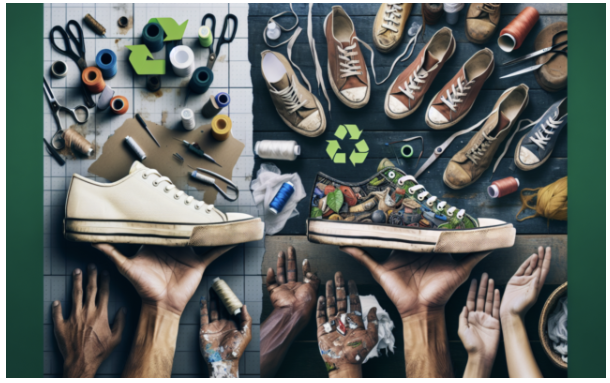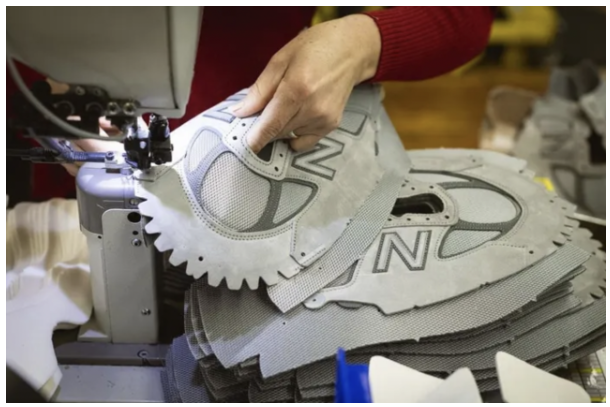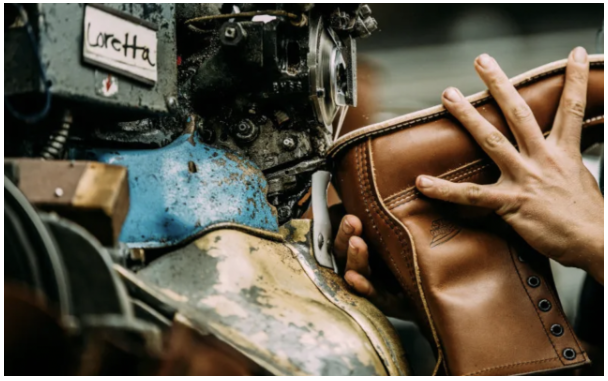How will Trump's second term affect the international footwear industry?
With Trump's election victory over Harris, the retail and footwear industries have begun to assess the impact a second term in the Trump administration could have on the industry's business. In the wake of Trump's victory, trade organisations and experts have expressed a desire to work with the president-elect to address many of the issues currently plaguing retailers and consumers, such as high costs, tariffs and restrictive trade policies.
‘Inflation was clearly a key driver of yesterday's election results, with many middle-class voters expressing deep concern about the impact of inflation on their household budgets,’ Retail Industry Leaders Association (RILA) President Policymakers should clearly consider their concerns when discussing taxes and tariffs,’ Brian Dodge said in a statement released Wednesday. Retailers are hopeful that the incoming Trump administration and Congress will take a strategic approach to international trade issues and implement policies that protect families from tangible impacts such as rising consumer prices.’

According to the Footwear Distributors and Retailers of America (FDRA), footwear prices are expected to rise overall for the fourth consecutive year by the end of 2024. This price increase is partly due to tariffs imposed on foreign goods (99% of footwear imports come from China, Vietnam and Indonesia).
Looking ahead, Trump's proposed tariff plan includes tariffs of 10 to 20 per cent on imports from all foreign countries, as well as additional tariffs of 60 to 100 per cent on Chinese imports. A study by the National Retail Federation (NRF) released this week warns that if the proposed tariffs are implemented, US consumers could pay an additional $6.4 billion to $10.7 billion per year for footwear, which would undoubtedly place a burden on consumers that cannot be ignored.
In an interview with FN, Matt Priest, president and CEO of FDRA (Footwear Distributors and Retailers Association of America), noted that supporters of the president-elect care deeply about their wallets. He mentioned that FDRA will be working to educate the new administration on different options to keep the industry competitive while lowering costs for consumers.

‘If you want to make sure that prices stay low, then encouraging the government not to raise taxes on the American people's goods could be a very good place to start,’ Priest said. Steve Lamar, president and CEO of the American Apparel and Footwear Association (AAFA), also warned that additional tariffs could have a non-negligible inflationary impact on the footwear industry and consumers in general. In a statement, Lamar said AAFA will work with Congress to revive trade agreements and other programmes to diversify and grow the industry both locally and internationally in a healthy manner and create more American jobs.
‘We also expect measures to protect our shipping lanes and ports and to stop counterfeit goods from flowing into the consumer market through third-party e-commerce platforms to be driven not just by good intentions, but by policies that are well-designed, implementable, practical, coordinated, and ultimately successful,’ Lamar added.
According to Neil Saunders, managing director at GlobalData, Trump may extend the 2017 tax cuts, which were set to expire at the end of 2025, which could boost consumer spending and positively impact the retail sector. Trump has also expressed interest in lowering the corporate tax rate to 15 per cent, which Saunders noted would benefit retail profitability and boost retail investment.

When it comes to M&A activity, Saunders said the Trump administration has typically been more interested in corporate mergers and acquisitions than previous administrations. ‘This doesn't necessarily mean that large deals like Kroger-Albertsons will be easily approved, but it does mean that deals like Tapestry-Capri will be received more kindly than they would have been under the Biden administration,’ Saunders said. ‘However, it's important to note that Trump is not a complete supporter of the free market, and certain political leanings, including a slightly more negative view of large tech companies, may still be reflected in regulatory policy.’
As Trump's second term opens, his administration is likely to continue to pursue local protectionist policies, including high tariffs on China, the European Union and other countries. This could increase the cost of imported goods, particularly consumer goods such as footwear and apparel. To avoid tariffs and reduce risk, companies may accelerate the diversification of their supply chains and look for alternative suppliers or production sites. Some firms may consider bringing some of their production back to the United States to reduce their reliance on imports.

And at the consumer level, tariffs and other trade barriers may lead to higher prices for goods, affecting consumers' purchasing power. Consumers may turn to cheaper alternatives or reduce spending on non-essential goods. On the other side, adjustments in personal income tax and consumption tax could also affect consumers' disposable income. On the corporate side, the Trump administration may ease regulations on businesses and reduce compliance costs, but it could also spark controversies about workers' rights and environmental protection, among other things.
Macro considerations, a Trump administration will have a wide-ranging impact on the retail and footwear industry, particularly in terms of trade policy, supply chain management and consumer costs. This requires that industry organisations and enterprises need to pay close attention to its policy trends and flexibly adjust their strategies to cope with possible challenges. At the same time, by working with the government, the industry hopes to promote more business-friendly policies that protect international trade as well as the tangible interests of consumers.

 EN
EN







































